|
Trinidad and Tobago has made National Geographic's annual list of superlative destinations for travellers to visit next year.
The list, which features 25 breathtaking places and experiences for 2023, was split into five categories including community, nature, culture, family and adventure. The 'Best of the World 2023' list is as follows: Community: Where conservation benefits everyone
0 Comments
Prime Minister Dr Keith Rowley and Energy Minister Stuart Young meet with BP’s Chief Executive Officer and other executives. Image via the Office of the Prime Minister Prime Minister Dr Keith Rowley on Thursday met with BP’s Chief Executive Officer, Bernard Looney, at the energy company’s global headquarters at St James's Square in London.
Minister of Energy and Energy Industries and Minister in the Office of the Prime Minister the Hon Stuart Young joined the Prime Minister at the meeting. BP was also represented at the talks by Anja-Isabel Dotzenrath, Executive Vice President Gas and Low Carbon Energy, David Campbell, President, BP Trinidad and Tobago (incoming) and Giselle Thompson, Vice President Corporate Operations, Trinidad and Tobago. BP provided an update to Dr Rowley on their plans for future gas production including the sanctioning of new projects. The discussions also touched on the progress of the Atlantic LNG restructuring negotiations which is expected to be finalised soon. Both parties reiterated their commitment to working together to ensure the future of Trinidad and Tobago’s energy sector. The Prime Minister used the opportunity to reinforce with BP that future fabrication of platforms and other infrastructure should be done in Trinidad and Tobago. Looney reiterated that Trinidad and Tobago remains an important asset in BP’s global operations and gave the assurance that the BP team would continue working assiduously with the Government on delivering a number of initiatives that would benefit both Trinidad and Tobago and BP. The Prime Minister will travel to The Hague, Netherlands later today where he is expected to meet with executives from Shell on Friday morning. (Source: The Loop, Sept 8, 2022 Several cocoa entrepreneurs will be able to take their businesses to the next level after being successfully matched with investors, said InvesTT.
In a statement the state agency said the Trinitario Cocoa Webinar Series, done in collaboration with the European Union, came to a conclusion on September 28, 2022. The organisation said the grand finale of the three-part series, entitled “The Cocoa Pitch”, was designed as a ‘Shark Tank’ styled business pitch event. Two youth start-ups and five medium-sized cocoa SMEs were given the opportunity to present a robust business pitch to investors, resource providers and key industry players with the aim of accessing technical, financial and capacity-building support and mentorship to start-up or scale their cocoa business operations. EU Ambassador Peter Cavendish said the EU was proud to have been part of this venture. “The Trinitario Cocoa Webinar Series has become a rich carnival, caravan tour of Trinidad and Tobago’s cocoa and chocolate producers. This heritage industry is moving forward to find and delight consumers worldwide with what every Trinbagonian knows, that the best chocolate is close to home – and the European Union has been proud to be a part of this dynamic.” Trade Minister Paula Gopee Scoon said the sector is "a strategic commodity with the potential to generate foreign exchange and contribute to economic diversification.” "The exports of primary and value added cocoa products increased by 31% over the period 2020 to 2021, from approximately TT$93 Million to over TT$122 Million. Of this increase, the European market accounted for 41%.” “There is a clear demand for our products, however, what is needed are innovators to create new products and experiences, and entrepreneurs to ensure that these products are made available.” Sekou Alleyne, President, InvesTT said the venture will aid the local cocoa industry. “The success of episodes 1 and 2 and the execution of The Cocoa Pitch event have enabled us [InvesTT] to fast forward the cocoa business agenda by facilitating investor matchmaking opportunities among European chocolatiers, investors and local cocoa stakeholders.” Pramilla Ramdahani, Vice President, Investments, InvesTT also shared that the Series aimed to increase bean to bar opportunities and joint venture/FDI opportunities. With 750 attendees in Episodes 1 and 2, and 244 attendees in Episode 3, representing over 32 countries worldwide inclusive of the United Kingdom, USA, Canada, Singapore, Ghana and Jamaica, Mrs Ramdahani expressed confidence that the outcomes of the webinar series will contribute towards the development of a thriving and collaborative cocoa ecosystem. The organisation said two youth start-ups; GEM, owned by Giselle Mills and 19-year-old youth cocoa entrepreneur Oshun Matthews, owner of Tamana Mountain Chocolate both delivered strong business cases. Three SMEs presented their pitches next; Ashley Parasram, founder of the Trinidad and Tobago Fine Cocoa Company, Tobias Schulze Frenkling representing the Original Trinitario Cluster and Vanessa Moses, Director at Caribbean Roasters. At the end of each pitch, the distinguished group of panelists comprising Crisen Maharaj, Manager of Capacity Building and Funding at ExporTT, Michael Mcquilkin, Manager, Investment Banking at Republic Bank, John Hadad, Group Co-Chief Executive Officer, HADCO Group, Sandy Roopchand, CEO/Managing Director at Royal Castle and Markus Mann, Producer-Artist-Entrepreneur, shared thoughtful comments and invaluable insights on how each entrepreneur/enterprise can advance their cocoa ventures through various grant funding programmes and partnership and/or mentorship opportunities. The panellists also posed a series of questions to each pitch presenter which enabled presenters and the live virtual audience to gain firsthand insights into the requirements for a compelling, investment-ready business case. Next on the agenda was a special presentation made by Professor Pathmanathan Umaharan, Director at the Cocoa Research Centre, UWI, where he highlighted the Chocolate Island initiative, a cocoa, carbon and community innovative project which seeks to attract Impact Investment into the cocoa sector in Trinidad and Tobago, and contribute towards building sustainable cocoa based supply chains. All attendees were then given a sneak peek into a short film entitled “Trinitario – On The Edge”, produced by filmmaker Denise Speck, who joined from Europe to introduce the trailer video. The documentary explores the storyline of the world-famous Trinitario Cocoa, birthed right here in Trinidad and Tobago. The Cocoa Accelerator Network was highlighted after, whereby the live virtual audience and all pitch presenters would have been edified on various opportunities to access resources and/or funding required for business growth, such as the Shaping the Future of Innovation project, the Linking Farmers Platform and Government’s Grand Fund Facility, the latter allowing individuals to access up to a maximum of TT250,000 to finance 50 per cent of the cost of acquiring new machinery and equipment. Albada Beekham, Director of Research at the Ministry of Agriculture, Land and Fisheries reaffirmed the Ministry’s commitment to support cocoa agri-entrepreneurs through the Agriculture Finance Support Programme, among other initiatives. All three episodes in the series were moderator by Jessie-May Ventour, a seasoned broadcaster and media professional who effortlessly managed the conversations and ensured a seamless, interactive, informative and enjoyable experience for all. (Source: The Loop, October 3, 2022) In keeping with time-honoured tradition, President Paula-Mae Weekes was pinned with the first poppy on Thursday.
Making the presentation at the Office of the President were Colonel Lyle Alexander, Denzil Mason and Hilton Clarke of the Trinidad and Tobago Legion of the Royal Commonwealth Ex-Services League. The annual distribution of poppies commemorates Remembrance Day, the day on which the armistice signed between the Allies of World War I and Germany took effect - the “eleventh hour of the eleventh day of the eleventh month” of 1918 and so is observed annually on November 11 in honour of the fallen soldiers of World Wars I & II. The Trinidad and Tobago Legion of the Royal Commonwealth Ex-Services League is a member of the Royal Commonwealth Ex-Services League which assists ex-Service men and women who served The Crown, and their widows, who are now in need. (Source: The Loop, Oct 14, 2022) VETERAN broadcaster and newspaper columnist Yusuff Ali died peacefully on Sunday at his home in London, England.
He was 85. The Media Association of Trinidad and Tobago (MATT) shared the thoughts of two other veteran journalists, Dominic Kalipersad and Neil Giuseppi, who worked with him and described him not only as a pioneer in the field of journalism in Trinidad and Tobago but as an individual who helped shape the media landscape as we know it in T&T today. “His rich voice, charming smile, and piercing interview style endeared him to viewers of Panorama, the flagship evening news programme of the-then lone television station (Trinidad and Tobago Television),” said Kalipersad. “A former teacher at Five Rivers TIA School, Ali’s entry to media, however, began in radio. He was among those who opened 610 Radio (Radio Guardian) in September 1957. It was there that he learned the craft of radio broadcasting, news-writing and broadcast journalism,” he said. “Under the tutelage of media heavyweights such as Larry Heywood, Frank Hughes and Ed Fung, Ali worked alongside great radio personalities such as Desmond Bourne, Freddie Wharwood and Ashton Chambers, as well as ace reporters John Babb and Geoff Lewis,” Kalipersad added. Eventually, he became chief editor at the station, where they pioneered hourly news bulletins. After four years at 610 Radio, Ali left to take up an announcer’s position at Barbados Rediffusion and, later, as an international functionary at a United Nations agency in Geneva. In the late sixties, he returned to Trinidad and Tobago Television (TTT) in the post of news director/Panorama producer and built a news team that started the journalistic careers of Giuseppi, Dale Kolasingh and Jai Parasram. Ali left TTT in 1975 for a position at the Commonwealth Secretariat at Marlborough House in London. For 25 years he wrote a newspaper column, first with the Sunday Guardian then with Newsday. Broadcaster Giuseppi described Ali as one of the greatest news personalities this country has known. “When I joined Trinidad and Tobago Television in July 1971, Yusuff was the news director and on that day began a friendship that I have always treasured and I became part of a team that day that comprised Yusuff, Ed Fung and Dale Kolasingh, all of whom have now passed to the Great Beyond,” he said. He said that Ali was the consummate professional who insisted on standards of excellence at all times. “ ‘There’s a time for work and a time for play’, he would say, ‘and when it’s time for work, I don’t want to hear about play’. And he lived that philosophy to the hilt,” said Giuseppi. “Yusuff, my friend and mentor, you have left an indelible mark on the news media in Trinidad and Tobago and this country will always owe you a debt of gratitude,” he said. (Source: The Daily Express, November 2, 2022) News coming to hand is that Ms. Thora Dumbell, 98, passed away today. The ABVMOTT Community is saddened by the news of the passing of one of our cultural icons. To honour this amazing and beautiful soul who passed earlier today, I am re-posting a tribute of Thora Dumbell written by one of our members Michael Baiz
____________________________________________________________ Aunty Thora, as she is fondly called by past students of her ballet school, is an icon in the history of dance in Trinidad and Tobago. Thora Dumbell was born on January 12th , 1924 and started her dance career at age 3. By age eight she had already appeared in two movies.For many years she ran her school out of the Chinese Association in St. Ann's. Her long and successful career was not limited to dance, she was also a well respected judge in Kiddies' Carnival and Easter Bonnet Parades. She did many charity shows and was a recipient of the Humming Bird Medal (Gold) in 1978 for Community Service. Thora Dumbell is the daughter of the late Louis Gillman Thomas who was an astute businessman in his time. He founded Thomas & Sons in 1949 which was a variety type store located in downtown Port of Spain on Charlotte Street. The company has since relocated to another part of the city and is owned and operated by his grandson, Allan Thomas. The store has grown into a distribution outlet for many top international brands and is a major supplier for steel in the country. About 70% of the country's requirements are supplied by Thomas & Sons. The attached link gives some more background on this amazing lady. (Virtual Museum of Trinidad & Tobago, Nov 4, 2022) https://www.aspiringmindstandt.com/thora-h-dumbell CANADIAN energy company Touchstone Exploration has announced that the Coho facility has safely delivered first natural gas, representing the first onshore natural gas project to come on stream in Trinidad and Tobago in over 20 years.
The Coho area is located in the Ortoire block, where Touchstone has an 80-per cent operating working interest, and Heritage Petroleum Company holds the remaining 20 per cent. In a media release yesterday, the company said on September 26 the Coho facility was approved by the Certified Verification Agent with the Energy Ministry promptly authorising facility commissioning. “On September 27, 2022, we commenced commissioning and achieved commercial deliveries on October 10, 2022, with a field estimated sustained gross production rate of approximately 10.5 million cubic feet per day (approximately 8.4 million cubic feet per day net). We will continue to monitor the Coho-1 well in an effort to optimise production,” the energy company said. Touchstone said in conjunction with initial production, the company has sold the 2.7-kilometre, six-inch gathering line tying in its Coho facility to the Baraka natural gas facility to the National Gas Company of Trinidad and Tobago Ltd (NGC). It noted natural gas production from the Coho facility will be sold to NGC pursuant to a natural gas sales agreement executed in December 2020. Paul Baay, president and chief executive officer, said Coho production represents the first stage of diversifying our product mix in Trinidad. “The Coho facility is capable of 24 million cubic feet of gross natural gas per day, giving us the ability to potentially add incremental production volumes through a combination of additional drilling and well optimisation. I would also like to recognise the collective contributions of our team in making this project a success,” Baay remarked. (source: Daily Express, Oct 12, 2022) A dazzling performance on stage at the Divali Nagar on Saturday. PHOTO BY AYANNA KINSALE - AFTER an absence of two years, due to the pandemic, the Divali Nagar returned at the nagar ground in Chaguanas, with a gala opening on Saturday evening.
Although opening night saw significantly less crowds than in years gone by, those who did show up, were treated to traditional East Indian music, songs, dance and food. East Indian clothing, shoes and jewellery were also on offer for sale at the many booths. Local VIPs including former prime minister Basdeo Panday, Tourism Minister Randall Mitchell, Agriculture Minister Kazim Hosein, and Chaguanas mayor Faaiq Mohammed were present. President of the National Council of Indian Culture (NCIC) Dr Deokinanan Sharma greeted the small crowd at the main stage and in revelling in the return of the celebrations, said that management of the organisation will see changes in the near future. The NCIC manages the nagar annually. Mitchell also spoke at the opening and thanked Sharma and his team for the work they have done over the years to ensure the continued survival of the nagar. "Their work has undoubtedly made citizens more aware of traditions associated with Hinduism and East Indian culture; a culture which has significantly influenced our life here in TT," Mitchell said. He also reminded of the important message behind the celebration of Divali, for both Hindu and non-Hindus, which is the triumph of good over evil. He urged everyone to enjoy the nine nights of celebration at the nagar leading up to the observance of Divali on October 24. “More importantly, let us challenge ourselves to be more peaceful, polite and gracious to one another. Let us continue to walk along the path of positivity, hope and light.” In between these speeches, there were performances from various cultural groups including the ZeeTV Shiv Shakti dance group led by Michael Salickram; the Dragon Boys' tassa group and even a steelpan rendition of a bhajan (Hindu religious song). (source: Newsday, Oct 16, 2022) HENRY Pereira will forever be lauded for bringing a local identity to parang music.
So exclaimed National Parang Association of Trinidad and Tobago (NPATT) public relations officer Joanne Briggs following the recent passing of the parang stalwart. “What Henry did is bring a sense of ‘Trinidadianess’ to the music. Even though he kept the tradition of the parang music structure, he incorporated some of what we are in the music,” said Briggs, during a WhatsApp exchange with the Express yesterday. That vision changed the course of the genre and gave parang the unique sound that is loved throughout the islands today, Briggs said. Pereira’s iconic parang hits “Parranda Fina”, “En El Corazon del Hombre”, “Andamos Buscando”, “Soca Sereno” and “Canta Noel” are all standards of the genre. “For example, with ‘Parranda Fina’—which is a favourite of a lot of parangderos, and they perform it as part of their repertoire—that song has a calypso rhythm to it. And it also describes where we go to sing parang and what we do for parang. It’s basically a tribute or love song for what parang is for us as parangderos,” Brings added. Pereira, 76, passed away on September 25. The Los Reyes parang band lead singer had suffered “a long illness” and was buried on September 29, following a service at St Anthony’s RC Church, Tabaquite. NPATT president Alicia Jaggasar expressed condolences to both the Pereira family and Los Reyes yesterday. Jaggasar, lead singer of Los Alumnos de San Juan, said Pereira’s contribution will live on for decades to come. “Mr Pereira will be missed. Many parang bands play his music, and his contribution to the artform would live in the hearts of all parranderos and parang lovers forever,” Jaggasar said. Briggs, meanwhile, said while parang music has lost another formidable act, they are still privileged to call on the experience and wisdom of veterans like Clarita Rivas, Michael Lezama and the surviving members of the famous Santa Cruz-based Lara Brothers band. “We still have people like Clarita Rivas around. We still have some members of the Lara Brothers still there—for example, Pink Eye. Even though he hasn’t been in the frontline as the Lara Brothers were, he is still part of the foundation of parang here. Yuh have people around. Our foundation members like Michael Lezama from San Jose are still here to learn from,” Briggs said. The Spanish teacher from Tabaquite In life, sharing knowledge is what Pereira did best. He was fondly known as the Spanish teacher from Tabaquite, having taught at the only secondary school in the area, Tabaquite Composite, after starting his teaching career at Rio Claro Government Secondary School. Pereira’s big break in music came unexpectedly after joining his first band, Los Muchachos del Agua, in 1973. The guitarist for the band, a young Pereira, found himself thrust into the spotlight and asked to do a solo one night when the original lead singer failed to show. “That performance won him the prize for best lead singer. He went on to win this title numerous times,” Briggs recalled. Jaggasar, meanwhile, says the passing of legends like Pereira leaves immense spaces in parang that must be filled by those next in line. It’s up to the more experienced parranderos on the island to set the pace anew for the next generation, she said. “Henry Pereira has influenced the lives of all parranderos in Trinidad and Tobago. During his earthly presence [he] ensured that his legacy would live on through the knowledge and skills imparted to us parranderos. On a personal note, Mr Pereira has been instrumental in me being the writer and parrandera I am today. I am writing and my eyes and heart are filled,” Jaggasar concluded. {source: The Daily Express, Oct 5, 2022} Trinidad is shrinking. On every coast, the ocean is clawing at the land.
A dramatic example of this unstoppable force was the collapse three years ago of an entire cliff face in Cedros that consumed almost five acres of land on a peninsula that the experts say is losing as much as two metres of land every year. But long before that Cedros calamity, coastal residents have been watching the sea with unease. Coastline erosion is something that often happens imperceptibly slow, over hundreds, thousands of years. But people are seeing landforms reshaped in mere decades. On Trinidad’s rocky north coast, village elders can tell of the stacks and arches, islets and caverns erased in short years, of sand beaches swept away to reveal long-buried rock formations, and of seafront homes undermined and lost to a conspiracy of wind, waves, currents, tides and a rising sea level linked to global warming, melting the ice caps and glaciers. On the island’s east coast, the roads to the old cocoa plantations and beaches in North Manzanilla now end abruptly at precipices, and the sea takes chunks of fertile land with every high tide. The bathing beaches between Manzanilla and Guayaguayare are losing the coconut trees and seawalls. Tidal surges have made brackish swampland out of cropland. Beachfront home owners spend a fortune protecting their investment, defending with boulders, tyre revetments, tree trunk groynes, rock cages and concrete embankments. But the Atlantic always wins, in the end. In the natural harbour that is the Gulf of Paria on the west coast, the land reclaimed along the King’s Wharf, San Fernando, at Waterloo’s cremation site and the Temple in the Sea, and overtopping the Mosquito Creek road is now being raised to fight the forces of nature. But nowhere is the evidence of Trinidad’s losing battle more striking than on the south coast, with its retreating clay and sandstone cliffs. Here is it recorded that up to 12 metres of land have eroded in a single year in areas between Los Iros and Quinam Bay—the location of South Trinidad’s most visited beach. A similar rate of erosion has taken place along Moruga’s south coastline, where at the once-popular La Retraite Beach, a visitor must descend a cliff to get to the shore. Moruga is also where you will find more worrisome evidence of what is happening—concrete abutments of flood gates and fishing boat landings now sitting out at sea, the staircases of houses embedded in the sand littered with uprooted forest trees and bamboo groves. A glorious triumph At Gran Chemin, Moruga’s main village, the St Peter’s statue, erected by custodian of the area’s history Eric Lewis, is now threatened. Its foundation is being licked by the waves finishing off the nearby fisherman shacks and derelict port facility. But it is this very coastline destruction in Moruga that has revealed a piece of Trinidad’s history buried for so long that when the waves exposed it some years ago, few knew what it was. It was brought to our attention by Moruga building contractor and community activist Loretto Miguel, who himself wanted to know what the thing was. At the dead low tide, you will find a thick cable emerging from the muddy sea, snaking along the sand, and disappearing into the land near the Moruga Roman Catholic Church. It is a telegraph submarine cable. It has been there since 1871, and it surely changed the course of Trinidad’s history. Before its arrival, Trinidad’s only means of communication with the world was by mail. The telephone was not yet invented. A letter to Europe went by ship and a reply would take months. That is, until the invention of the electric telegraph in the 1850s, when Morse code could be transmitted through copper wires over long distances in order to communicate by telegram. This would lead, after many failures, to the development and laying of a transatlantic submarine cable in 1858 connecting the United Kingdom with North America, considered one of the great feats of the time. “It is a triumph more glorious, because far more useful to mankind, than was ever won by a conqueror on the field of battle,” US President James Buchanan messaged Queen Victoria in the first telegram to be exchanged in 1858. The telegraph cable network would expand to include a connection to Cuba, Panama, Jamaica, Puerto Rico, St Thomas, St Kitts, Antigua, Guadeloupe, Dominica, Martinique, St Lucia, St Vincent, Barbados, Grenada, Trinidad and Demerara (now part of Guyana), with the land lines across the islands measuring 275 miles. It is that Trinidad-to-South America cable connection that has been exposed in Moruga. Birth of Cable & Wireless In the journal of chief engineer and electrician Sir Charles Tilston Bright, the man who oversaw the laying of the cable system for the West India and Panama Telegraph Company, his visit to Moruga to examine the proposed landing site is reported as September 9, 1871. Within months of his visit, the island was connected, with it being recorded: “At Trinidad, the Demerara cable was landed at the south-east corner of the island; while the continuing section northwards to Grenada was taken from Macqueripe Bay. The connection to Port of Spain (the capital) on the west side, was made by means of a long land-line. A great part of this was erected through dense forest of more than 50 miles, which had to be cleared by a small army of wood cutters for a width of at least 40 feet, for a considerable distance.” By 1910, the major countries of the world were connected, and messages that took months to send could be transmitted in mere minutes. What can be seen in Moruga is part of the thicker section specially designed to withstand the surf at landing sites—a cable with a core of seven copper conductor wires insulated with a type of natural latex called Gutta Percha, bound by an outer layer of steel, and encased in silica and tar, weighing 16 tonnes to a mile. In all 4,200 miles of cable were laid by the West India and Panama Telegraph Company. And get this: that company would come to be known as Cable & Wireless. {Daily Express, Oct 12, 2022} |
T&T news blogThe intent of this blog is to bring some news from home and other fun items. If you enjoy what you read, please leave us a comment.. Archives
July 2025
Categories
All
|
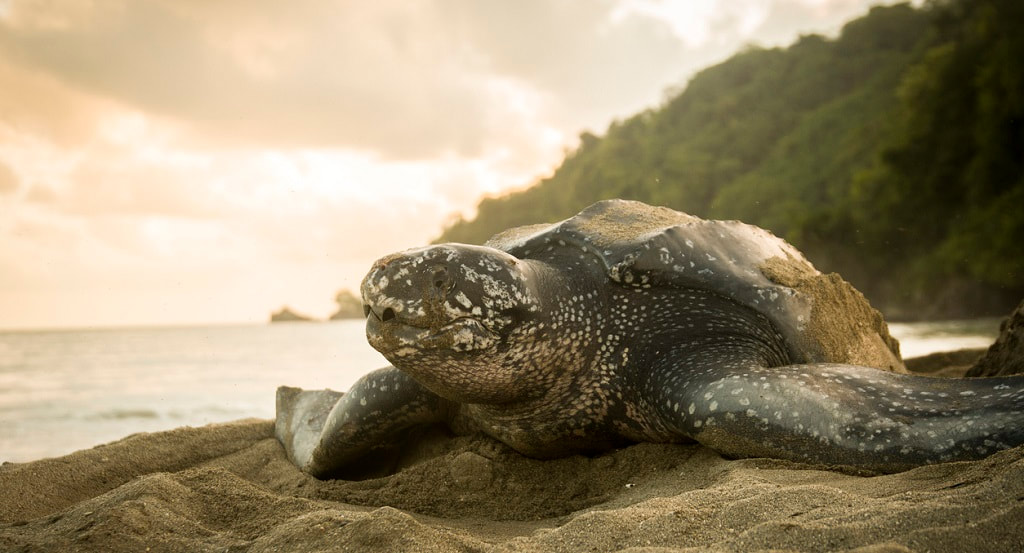
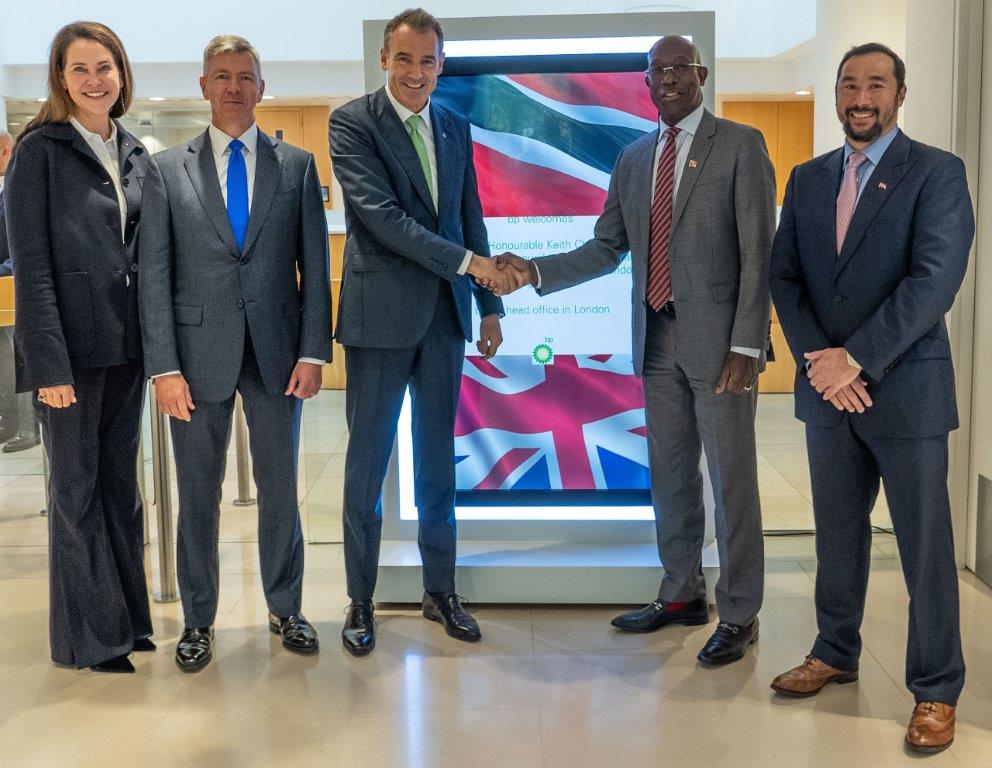
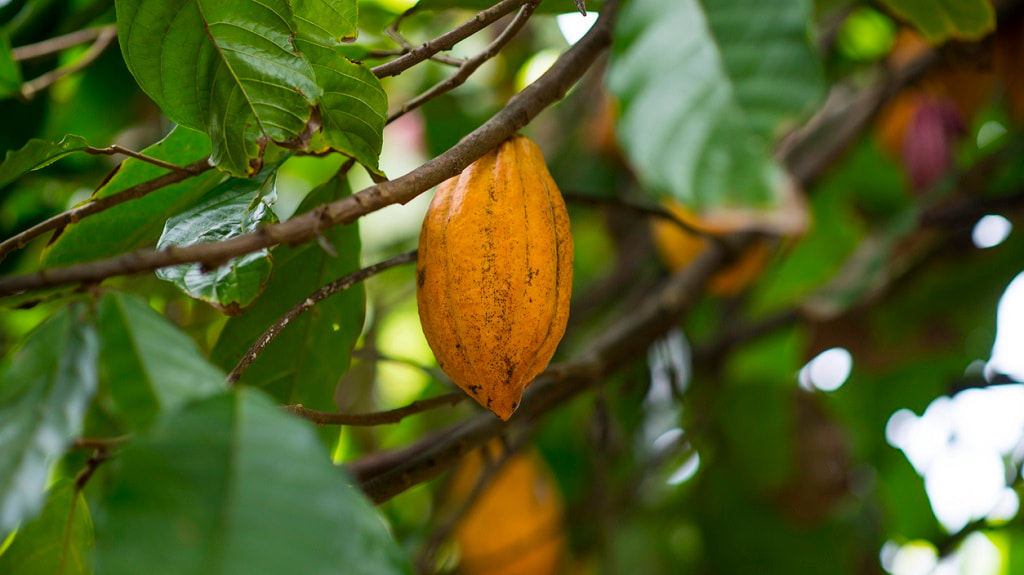
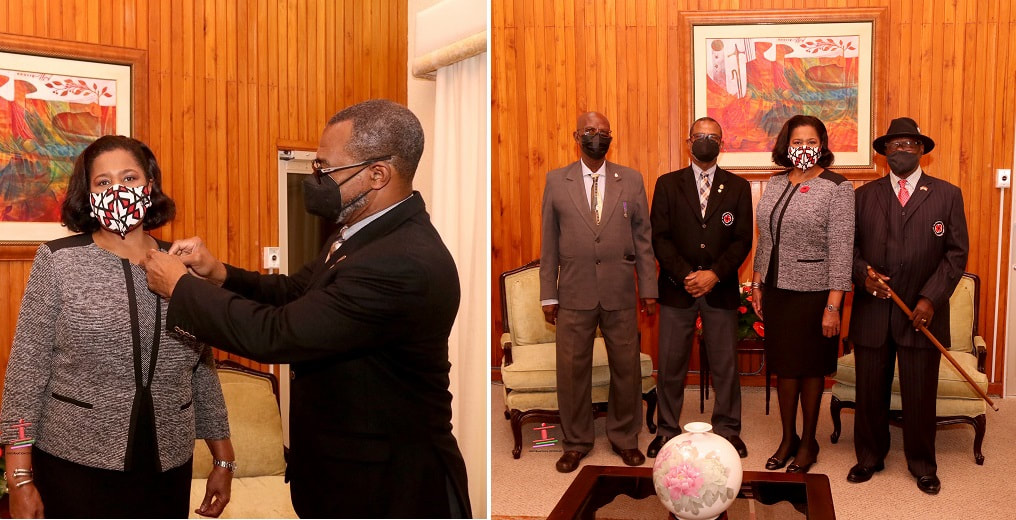
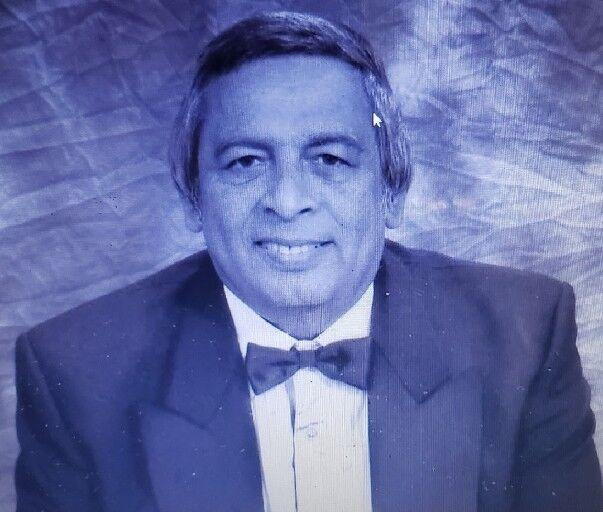
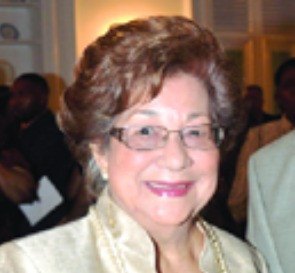
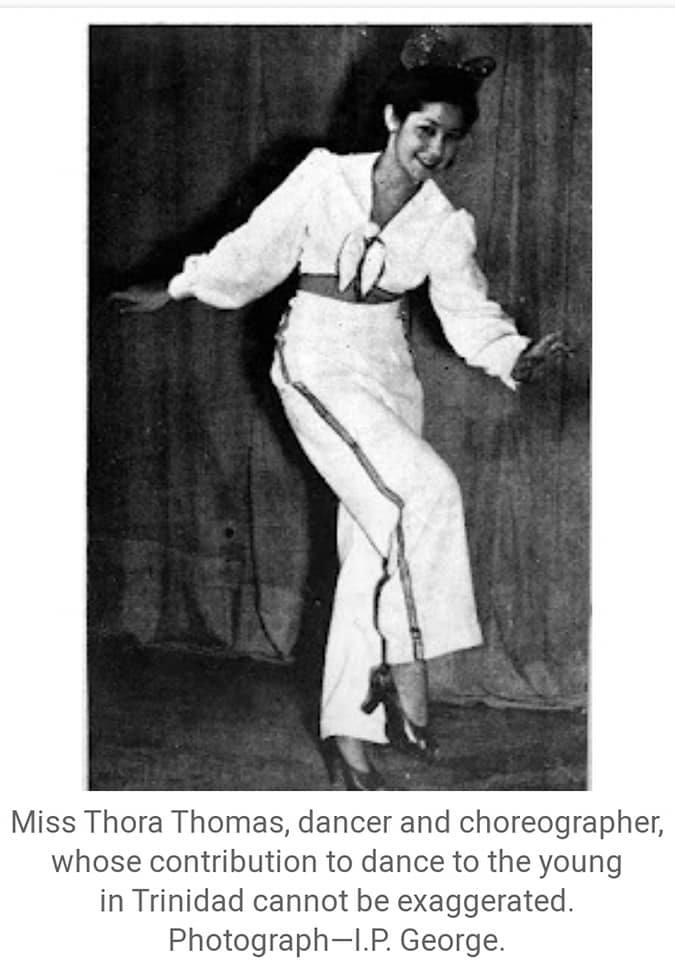


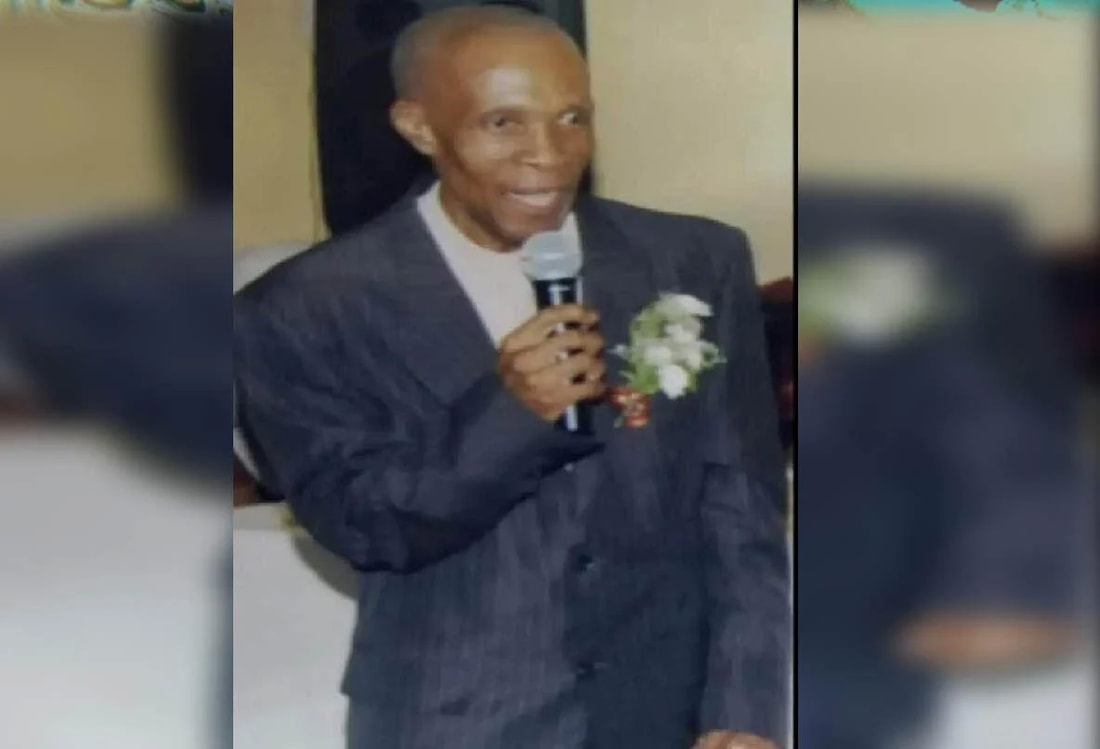
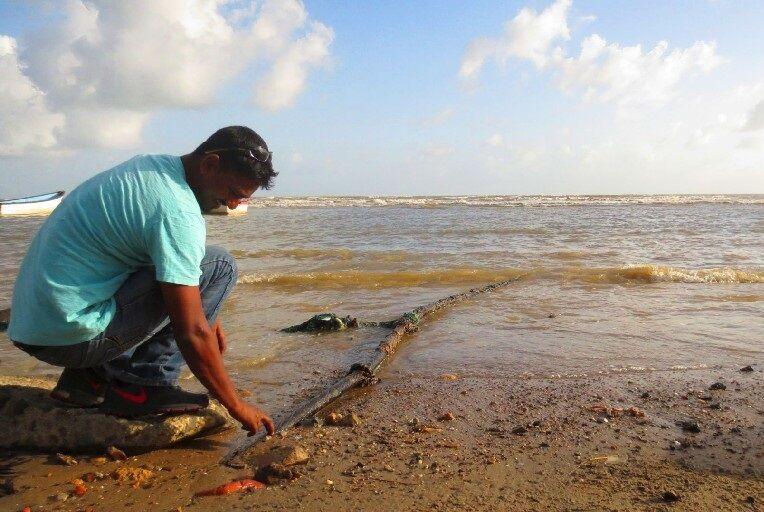

 RSS Feed
RSS Feed